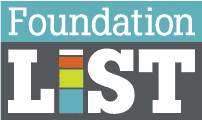Top Ten Nonprofit Jobs Interviewing Tips
The secret to excelling in a nonprofit job interview is more science than you think. There are actionable steps you can take to increase your odds of getting the offer you want. Our staff here at Foundation List is committed to helping candidates learn best practices in our sector so you can, in the end, help the greater good!
Please keep this in mind: nonprofits look for candidates to meet three main overall criteria, (1) who match their mission/work, (2) the job requirements, and (3) fit into their specific environment, culture and compensation history.
The following top ten nonprofit job interview tips will prepare you best to meet the needs of nonprofit employer expectations. Review this list prior to your interview date and make a checklist of any areas you need to accomplish to prepare.
Always do the following:
-
Express interest in their mission and the organization’s work.
To do this you will need to do more than simply read their mission statement. Research them, learn about the programs they run, learn about their staff and become knowledgeable about what they do, so you can express your personal motivations in helping the work succeed.
-
Get to know the organization deeply.
The best candidates do their homework. So before you interview download their 990 from Guidestar.org (its free to do so) and research both the organization and the people you will be meeting. If you are not familiar with Guidestar, it is a free site you should consider signing up at. There you can find amazing information about what nonprofits exist in your region and also allows you to search by mission, location, size or other aspects! It’s a great site to learn about the types of organizations that exist can lead you new nonprofit jobs! Never ask questions where the answers can be found in the job description or easily on the website.
-
Be part of the club.
Nonprofits have their own culture and they are not only looking for someone with the right skills but also someone that matches the speed of their work, the energy of their staff, attitude, and nonprofit philosophy.
-
Show and be prepared to describe examples of work that relate to their programs.
There is no better way of showing the care you bring to your work than first understanding their programs, structures.
-
Know the job you are applying for with great detail, and be prepared to show your interest in the specific work of the role.
Never overlook the importance of showing your past experience in the responsibilities of the role you are applying for. Go through the job description carefully and understand the responsibilities and requirements of the role. Make sure you share your relevant experience and skills that match the job description in your interview.
-
Be positive at all times.
Never talk bad about your past employers (even if they were terrible). Nine times out of ten it makes you look bad. All employers are seeking candidates that fully respect their past employers and would never speak poorly of them, in any situation.
-
Bring honestly, enthusiasm, excitement, and energy.
- Relax, but stay alert.
- Stay positive (no one likes negativity).
- Use eye contact.
- Be yourself.
- Always represent yourself honestly.
- Sit up straight.
- Ask questions about the position, company and the interviewer. (Get them talking about themselves, and listen).
- NEVER ask questions about salary, commission, bonuses, vacations or anything else the company can do for you. Wait until you have a job offer or they ask.
- Never get too comfortable. Remain professional and on guard. This is the main reason why many people do not excel in final interviews.
- Always answer questions about your current and or past salary honestly and directly.
- Never name drop.
-
Show you have the skills and desire to conduct the responsibilities of the position.
- Offer specific examples of prior work, projects, and/or duties that relate to each question that is asked of you.
- Never answer a question for longer than two minutes.
- Do not offer general sweeping answers without specific examples.
- Always use examples of responsibilities that relate to the employer area of expertise and the position you are applying for.
-
Sell yourself at their speed/know how to close.
- Describe your skills while meeting the pace of the environment.
- Always speak formally but try to be yourself. Even if your interviewer is relaxed, informal, always stay professional and formal at all stages of the interview. Most employers seek candidates who are direct, honest and also respect the formality of the interview process.
- Communicate your passions that relate to the position you are interviewing for.
- Show them that you can get along with others and that you can address questions in an organized fashion.
- Always make sure to have a personality and be excited, but never be too loud, or overpowering/dominating that you lead the discussion process.
- Ask questions.
- Overcome objections.
- Tell them your interest level, availability, and why you are a superior candidate.
- And this is the hardest part, have fun! Candidates that enjoy the meeting, get the job.
-
Understand best practices, follow them and enjoy the meeting!
- Always dress for success.
- Dress in a plain navy or dark-colored business suit.
- For all interview, stages wear conservative professional attire, and shoes that present well.
- Make sure to research the employer and position you are interested in and be on time.
- Remember that not being prepared tells an employer that you do not respect their time.
- Arrive 5 minutes before an interview, not 10, not 15, and never ever walk in late. Be in the area and know where you are going prior to the interview.
- Bring at least 3 copies of your resume.
- Prepare and bring a copy of your references.
- Bring a pen and notebook to takes notes before and during the interview.
- Prepare questions to ask during the interview.
- Greet everyone in the office with a smile and hello.
- Try to enjoy the meeting(s), be yourself, but always stay professional!
Don’t forget to practice!
Practicing for an interview is key to performing well and making a great impression. One way to prepare is by having a mock interview with a family member or friend. This will allow you to practice answering questions and get feedback on your responses. You can also use this opportunity to practice your body language, tone of voice, and overall presentation. By practicing with someone you trust, you can receive honest feedback and improve your skills before the actual interview. This can give you the confidence you need to ace the interview and increase your chances of getting the nonprofit job you want.
Top 10 Questions to Expect in a Nonprofit Interview:
- Why do you want to work for this organization?
- What experience do you have working in the nonprofit sector?
- How do you prioritize your workload and manage your time effectively?
- Can you describe a time when you had to work collaboratively with others to achieve a goal?
- How do you handle conflicts or difficult situations in the workplace?
- What motivates you to work in the nonprofit sector?
- Can you tell us about a successful project you managed and the impact it had?
- How do you stay up-to-date with the latest trends and developments in your field?
- Can you describe a time when you had to adapt to a new environment or work with people from diverse backgrounds?
- What are your long-term career goals and how does this position fit into them?
Preparing for a nonprofit interview requires research, practice, and confidence. By following these tips and being prepared for the top 10 questions, you can make a great impression and increase your chances of landing the job. Remember to be genuine and passionate about the work the organization does, and show how you can contribute to their mission. Good luck!


